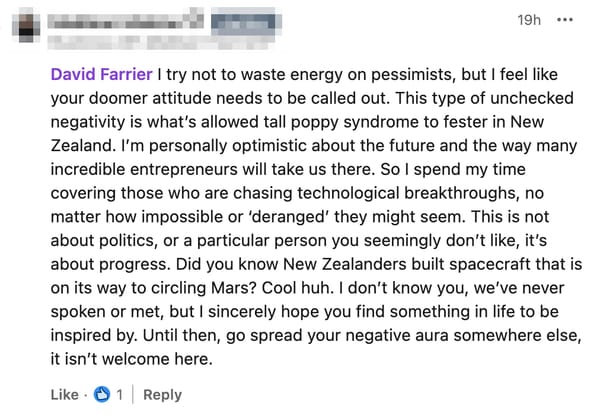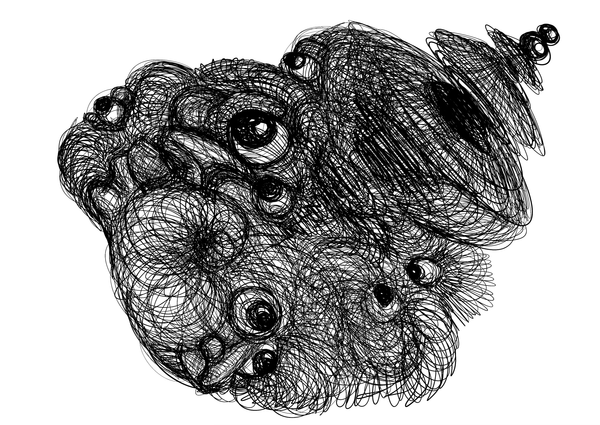Sonic attacks!
Sonic weapons, mass delusions, and a small bug.
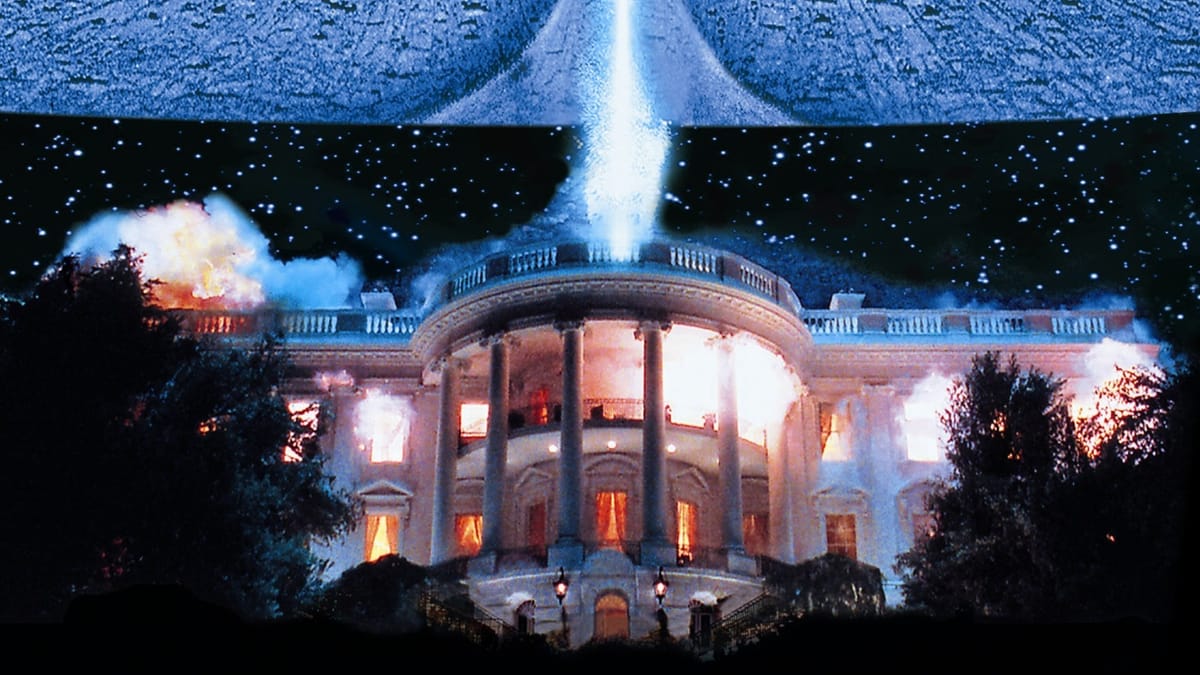
Hello,
I hope you’re good.
Life is exhausting right now, huh? I mean, I’m a white dude — I personally have nothing to complain about — but it just seems like nothing changes.
This week, the Aurora police broke up a peaceful protest over their killing of a peaceful kid (Elijah McClain). And while the cops who killed George Floyd just had an appearance in court, the ones who busted down Breonna Taylor’s front door and shot her to death are entirely footloose and fancy-free.
It’s all so predictable - as predictable as JK Rowling doing another dumbass thing.
The world is mad and we’re going mad with it: supermarket shoppers screaming and throwing things out of their shopping carts like toddler’s when told they have to wear face masks.
Today, a distraction. But another example of things being just a little fucking hectic in the world. I hope you like it.
David.
Back in 2017, there were a lot of headlines about “sonic attacks” on United States diplomats living in Cuba.
It sounded truly terrifying. My mind jumped to films like Independence Day.

These Americans were just going about their usual business (what do diplomats do? No-one knows!) when they got hit by something. Something painful, disorientating… and invisible:
They all reported being exposed to either some strange noise or pressure and then immediately after that exposure, the majority felt intense ear pain and ringing, according to the study. They all then noticed cognitive symptoms, including feeling disoriented.
They did studies on bunch of the victims, and it sounded truly horrific:
The study noted that some of the findings may seem similar to symptoms of a "mild traumatic brain injury following blast exposure or blunt trauma.
President Donald Trump got quite angry and pointed the finger at Cuba, saying, “I do believe Cuba’s responsible. I do believe that. And it’s a very unusual attack, as you know. But I do believe Cuba is responsible!”
But Cuba was all “What the fuck you on about it’s not us buddy!”
But admittedly, the whole thing did seem quite dicey.
After all, this wasn’t the first alleged use of a sonic weapon: There was a prolonged attack on the US Embassy in Moscow that went on for years, between 1953 and 1976. America declared that it was “attempted espionage”:
The microwave beam came from a source in a Soviet apartment building about 100 metres west of the 10-floor embassy building.
No one died, but it didn’t sound pleasant.
So, anyway - Trump blaming Cuba for a “sonic attack” wasn’t the looniest thing he’s ever said.
Plus, things bumped up a notch in May of 2018, when the same shit popped off in China:
US Secretary of State Mike Pompeo said Wednesday that an incident involving a US government employee stationed in China who reported "abnormal sensations of sound and pressure" suggesting a mild brain injury has medical indications that are "very similar" and "entirely consistent" to those experienced by American diplomats posted in Havana.
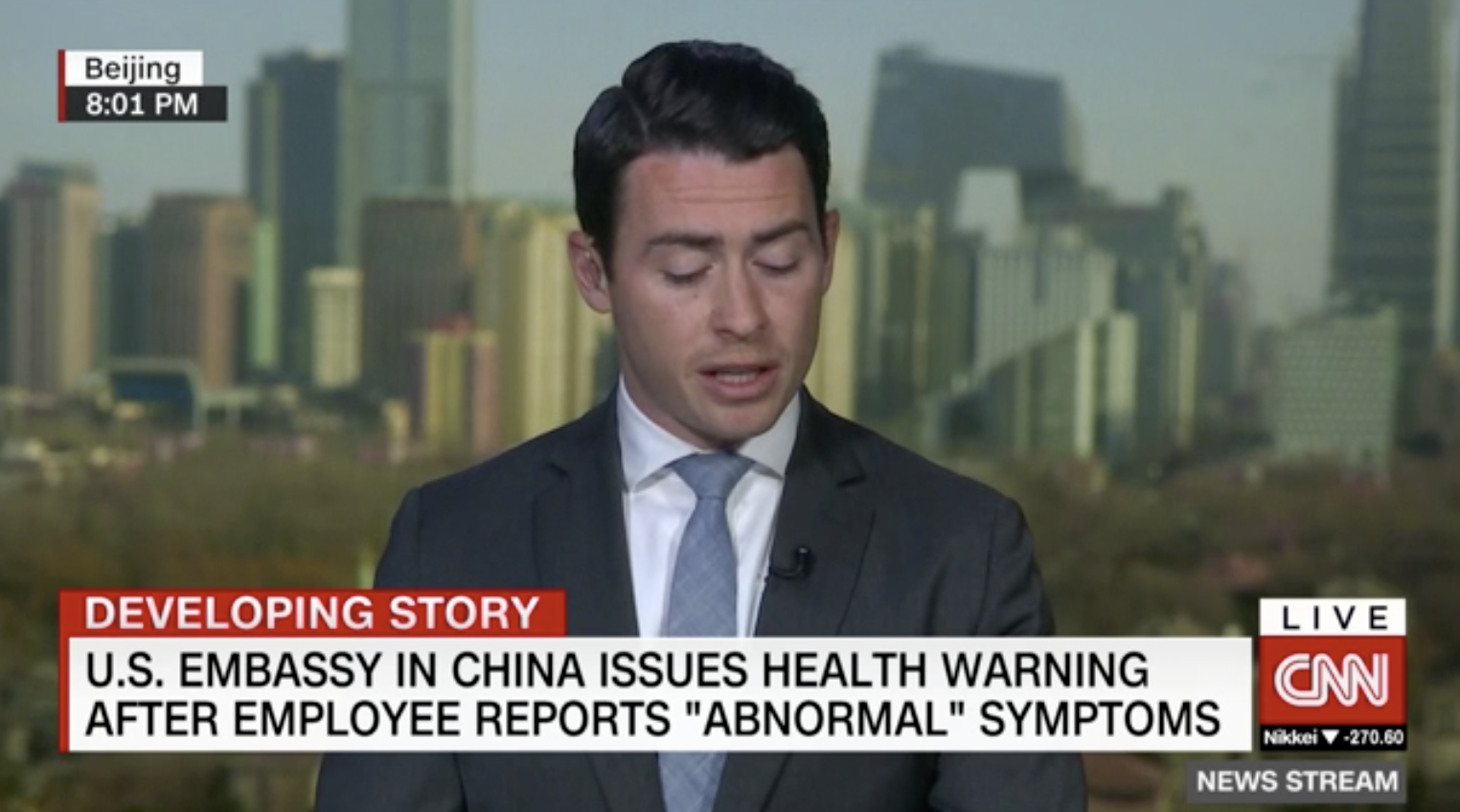
The headlines were spreading.
New details on diplomat's mysterious brain injury linked to sonic attacks!
Cuban Sonic Attack Survivors Have Structural Changes in Their Brains, Study Finds!
Microwave Weapons Are Prime Suspect in Ills of U.S. Embassy Workers!
I even remember watching stories about it on the 6pm news in New Zealand.
It was everywhere - and the concept of sonic death ray had me enthralled.
But the thing is, there’s a very strong argument that the sonic weapon was not a sonic weapon, but a bunch of… crickets.

Recordings of the “sonic attacks” spectrally matched the echoing call of a Jamaican field cricket, or Gryllus assimilis. There’s a big fat report about it here.
People heard crickets… and their brains made up the rest. All of it. There’s a very strong possibility it was all in their heads.
“This is a small, close-knit community in a foreign country that has a history of being hostile to the United States. That is a classic setup for an outbreak of mass psychogenic illness,” says Robert Bartholomew, an American medical sociologist living in New Zealand.
Bartholomew is a Research Fellow with the Center for Inquiry in New York and an honorary member of the Department of Psychological Medicine at the University of Auckland. He has a PhD. He’s very brainy. He was also a wonderful guest on the very-loose podcast I used to do with Rhys Darby, The Cryptid Factor. I became a fan.
I just read a book he wrote recently called Havana Syndrome, which is all about what went down in Cuba.
Somehow I’d missed this whole story, and so I’ve been devouring the book.
Bartholomew’s theory (which he shared with others) is not without controversy - State Department Medical Director Dr. Charles Rosenfarb totally ruled it out in January of 2018, saying that “The findings suggest that this is not a case of mass hysteria”. Not that he had any better ideas.
And Bartholomew is sticking to his guns:
As a specialist on mass psychogenic illness who has spent the last 25 years studying this topic, the head physician for the U.S. State Department has gotten it wrong—very wrong. I will stake my career on this. You can take it to the bank, and mortgage your house, car, and the family pet.
I am convinced that we are dealing with an episode of mass psychogenic illness and mass suggestion triggered by lingering Cold War paranoia.
I love this shit, and I wanted to share it with you. They need to make a movie out of this. Put Channing Tatum in it. Or The Rock.
“Havana Syndrome” isn’t the only case of mass hysteria. Bartholomew’s other book also sits on my shelf: Outbreak! The Encyclopedia of Extraordinary Social Behaviour, and contains 340 cases of cases of mass delusion.
Some of them include the Chinese Needle Scare, the Cyber Ghost Scare, the School Fainting Flurry and the Spouse Dropping Revival.
Screw a movie, I want a series.
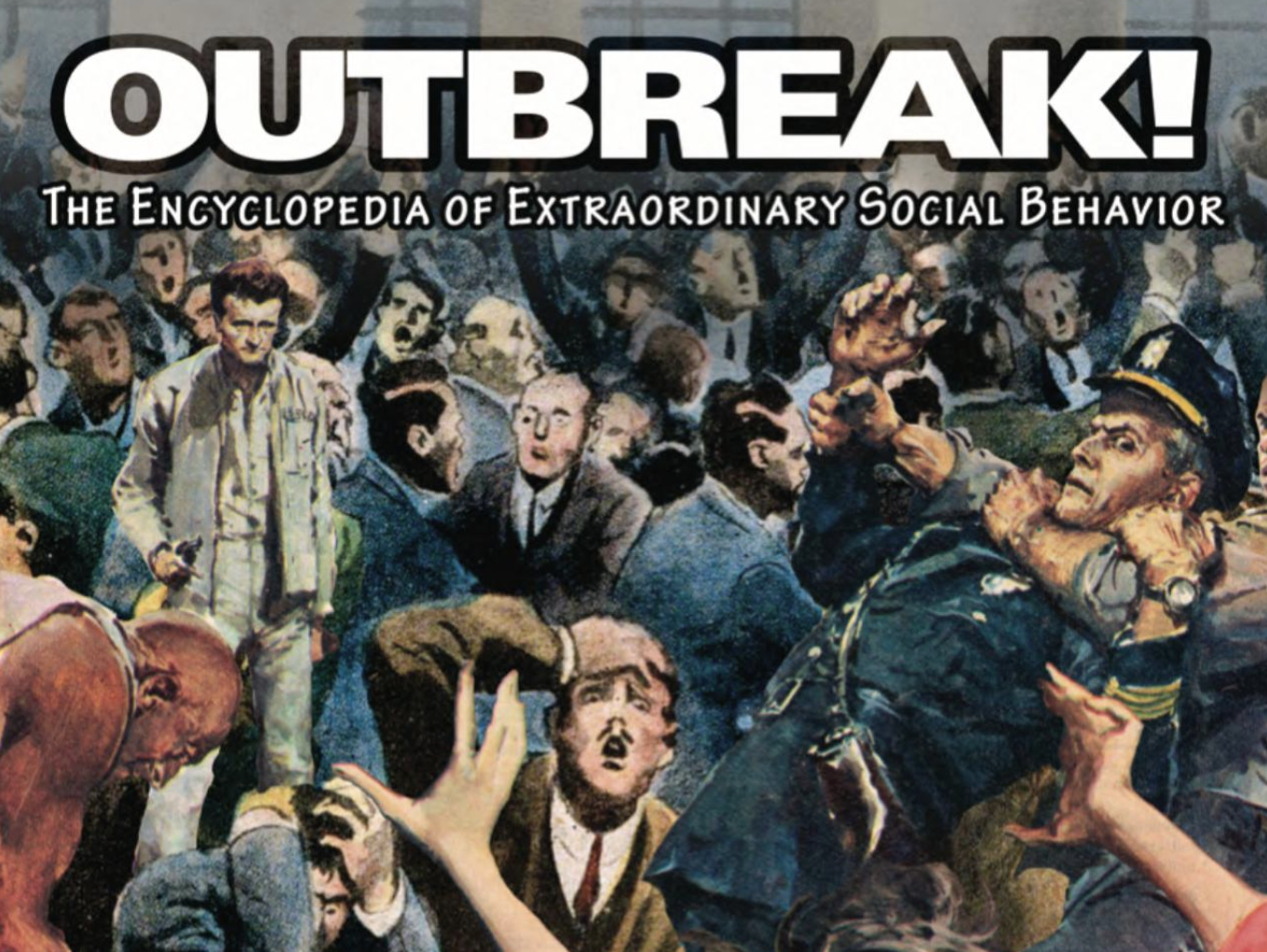
That’s me for today. I hope you’re well. Talk soon.


